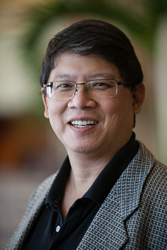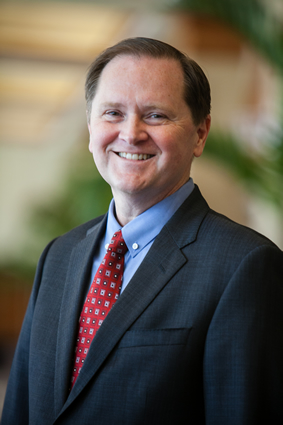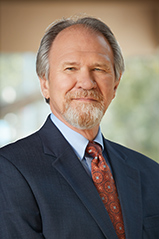
Technically speaking, entrepreneurship is the process of building a business to make a profit, and much of what online, continuing, and professional higher education units do is just that.
There are a number of key components that go into being a successful higher education entrepreneur. The usual suspects include financial modeling, risk assessment and tolerance, market analysis, program development, and so on. However, success does not lie only in being good at the technical aspects of these processes. Rather, it is important to understand the broader context in which higher education operates—a context that fluctuates and changes due to national and global forces well outside of higher education. For instance, most online, continuing, and professional education leaders understand that the adult student market behaves counter-cyclically to the economy. When the economy is good, people go to work and don’t go to school; when the economy is bad, people go to school to improve their chances of getting or keeping their jobs. However, the business market fluctuates with the economy, so businesses invest in training and personnel development during good economic times and jettison training when the economy goes south. Understanding this and other consequences of social, political, and economic fluctuations on higher education helps online, continuing, and professional education leaders adjust their entrepreneurial strategies to capitalize on market needs and maximize ROI. In this session we will explore the process of successful higher education entrepreneurship within the large context in which we live and work.
 David Schejbal, Dean, Continuing Education, Outreach & E-Learning
David Schejbal, Dean, Continuing Education, Outreach & E-Learning
Throughout his career, David’s single focus has been on making higher education accessible, affordable and flexible for working adults. As dean of UW-Extension Continuing Education, Outreach and E-Learning, David and his entrepreneurial team partner with all 26 campuses in the University of Wisconsin System to increase access to higher education.
David’s vision for learning includes inventing ways to reach beyond traditional higher education to meet the needs of an increasingly diverse student spectrum. Because of this, University of Wisconsin-Extension has become a leading voice and driver of groundbreaking online programs such as University of Wisconsin Flexible Option, the first competency-based degree offered by a public university system; the University Learning Store, an alternative credentialing program that partners with other top universities; and innovative online degree and certificate programs offered in partnership with UW System campuses.
David received his Ph.D. in philosophy from the University of Connecticut. He serves on several boards and is a frequent keynote speaker and author of articles published in American Council on Education, Innovative Higher Education and Inside Higher Ed.
A panel discussion will address issues of autonomous mobility and the integration of next generation mobility into society. The panel will address how autonomous vehicles will affect our lives, and the social and economic impacts involved. What are the benefits, opportunities, and unintended consequences of driverless cars? What are the implications for higher education? What is the timeframe for this new technological phenomenon and how can we plan for it?
Learn More About Our Panelists:
In just the past year, momentum has shifted more rapidly than expected in a number of sectors and industries, which may dramatically impact related economies and ultimately higher education. Economies and industries are likely to be disrupted and workers shifted to new industries and growth areas. New demographics of power will come into place, which could place more support on new modes of learning such as badging and alternative credentialing. The UPCEA Center for Research and Strategy will show what it believes to be major changes on the horizon based on employer interviews, surveys of Millennials and Generation Z, occupational forecasts and scans of company and news sources.
 Jim Fong, Founding Director
Jim Fong, Founding DirectorJim Fong is the founding director of UPCEA’s Center for Research and Strategy. In his role, Mr. Fong has analyzed demographic, occupational, technological and societal trends and data to help the higher education community better serve the adult and corporate learner. As the Center’s director, he works closely with dozens of colleges and universities annually in new program development initiatives, enrollment management and marketing process analyses and the review of online and continuing education portfolios.
Prior to joining UPCEA, Mr. Fong worked as a higher education strategic marketing and CRM consultant and researcher for two firms and prior to that was the Director of Marketing, Research and Planning for Penn State Outreach. At Penn State Outreach, he was responsible for strategic marketing, marketing management, research, creative and database teams. Mr. Fong played a major role in the early launch of Penn State’s World Campus by assessing new program needs and the development of marketing strategies and systems.
Jim holds an M.B.A., an M.S. in Applied Statistics and a B.S. in Mathematics, all from The University of Vermont. In 2004, UPCEA awarded him the Adelle Robertson Award as its Continuing Professional Educator for the year. That year, he also received the Mid-Atlantic Region’s Distinguished Service Award.
The Universe of Alternative Credentials, Business, industry, and changing demographics suggest the demand for traditional four year degrees will remain flat or decline, while alternative credentials will increase. Suppliers of alternative credentialing can come from a number of places, but will higher education keep pace? This presentation will showcase essential elements of the Alternative Credential landscape, including foundation support, advocacy for badging and micro-credentialing, institutional responses, and benchmarking data which defines the emerging trends in alternative credentials.
After setting the alternative credential stage, a panel of workforce experts from a variety of small, medium and large businesses and industries will engage, discuss and provide feedback about their current hiring challenges/workforce, impressions of entry-level college graduates, workforce retention, and the importance of professional development for the current workforce.
We hope to engage the audience to answer some probing questions: What is their workforce vision? How can higher education support that vision? How might alternative credentialing help them?
What we know is that for alternative credentialing to be most effective, employers need to be fully engaged with higher education to help define, implement, and evaluate this concept.
 Bob Hansen, CEO
Bob Hansen, CEODr. Robert J. Hansen was named Chief Executive Officer of the University Professional & Continuing Education Association in September 2010. Under Hansen’s leadership, UPCEA has grown by 125% in the past six years. He established a number of initiatives targeting the association’s unique role in online leadership and management under the umbrella of the National Council for Online Leadership: the Summit for Online Leadership and Administration, the Online Leadership Roundtable for chief online learning officers, and the UPCEA Hallmarks of Excellence in Online Leadership. He also established the UPCEA Hallmarks of Excellence in Professional and Continuing Education, advancing two frameworks to provide a set of standards that reflect the ambitions, potential, and importance of units that serve adult learners.
Hansen previously served as Associate Provost for University Outreach at the University of Southern Maine, a regional public university located in Portland, Maine. Prior to that position, he spent six years at Saint Xavier University of Chicago as Assistant to the President & Secretary of the Corporation, and then as founding Executive Director of Orland Park Campus & Off-Campus Programs. Hansen also previously served as Assistant to the Governor for Education in the administration of former Illinois governor, Jim Edgar. Hansen earned a B.S. in Psychology from the University of Illinois, an M.A. in English Language and Literature from the University of Michigan, and a Ph.D. in English from the University of Notre Dame.
 Wayne Smutz, President, UPCEA and Dean of Continuing Education and UCLA Extension
Wayne Smutz, President, UPCEA and Dean of Continuing Education and UCLA ExtensionWayne Smutz is Dean of Continuing Education and UCLA Extension at the University of California Los Angeles, a position he has held since October 2013. Prior to his current role, he was the Executive Director of the Penn State World Campus and Associate Vice President of Academic Outreach.
Dr. Smutz also is the Founding Dean of UCLA Global Online. This campus initiative is focused on establishing UCLA’s presence as a global university with respect to its educational offerings. It will include both campus based graduate-level programs and UCLA Extension certificates when it launches in Fall 2018.
Dr. Smutz is President of the University Professional and Continuing Education Association (UPCEA) and has served on its board for several years. He previously served on the boards of the Online Learning Consortium (formerly the Sloan Consortium) and the American Distance Education Consortium. He was a faculty member for the Institute for Emerging Leaders in Online Learning in 2011 and 2012. In 2011, he received the Sloan Consortium's John Bourne Award for Individual Achievement in Online Learning while in the same year Penn State's World Campus was awarded the Sloan Consortium's award for Institution Wide Excellence in Online Learning. In addition, he has received national and regional UPCEA programming and engagement awards.
A native Californian, he is a Phi Beta Kappa graduate with a BA in History from the University of California at Berkeley, and the recipient of an MA in political science, along with a PhD in higher education, both from Penn State.
There is change. Then there are the culminating effects of long term patterns paired with catalyzing events that combine to bring about a fundamental shift in how we view the world. Higher education can be especially sensitive to and is even often at the leading jagged edge of these changes, sensing them long before it is itself changed by them. Through the observational sciences the academy monitors and reports on innumerable reverberations that may be precursors of change but appears to be unaffected itself by what it studies. When the scales tip, however, structures, cultures and values can slide away with astonishing speed and dramatic implications.
We may be approaching such an epochal moment in higher education and society. Over the course of less than one generation, what was public is now private, what was meritorious is suspect, what was different is increasingly common and what was distant is now immediately upon us. As educators we are left to determine whether it is our role to simply describe and analyze what is going on without prejudice, or if we should associate it with meaning, predict its implications and prepare society for what is about to unfold.
If you were to suspect that a great judgment was at hand, what would you do? If you believe that transformation is long overdue, how would you prepare?

John C. Burkhardt is professor of clinical practice at the Center for the Study of Higher and Postsecondary Education (CSHPE) at the University of Michigan, was the founding Director of the National Forum on Higher Education for the Public Good (National Forum) and formerly served as Director of the National Center for Institutional Diversity (NCID).
Prior to establishing the National Forum, John was program director for leadership and higher education at the W.K. Kellogg Foundation, where he led several major initiatives focused on transformation and change in higher education and participated in a comprehensive effort to encourage leadership development among emerging and aspiring leaders.
John’s research focuses on leadership and transformation, organizational culture, and the role of philanthropy in U.S. society and higher education. In 2017, John edited two books focused on his work. One explored ways in which research and practice could be integrated in strategies for promoting community and society change. The other examined the changing definitions of “diversity” as a scholarly topic in higher education, explored through the lenses of demography, democracy and discourse. In August of this year, Dr. Burkhardt was featured in a massive open online course (MOOC) sponsored in partnership with Coursera. Entitled “Leading for Equity, Diversity and Inclusion in Higher Education” it draws current and aspiring leaders into a discussion about how these three important values differ and may even be in tension with one another, and explore why they seem so difficult to actualize within higher education and society.
 Enhancing Engagement with Gameful Learning
Enhancing Engagement with Gameful LearningHow do we get learners to be deeply engaged with subject matter? To explore and take risks? And most importantly, to be resilient in the face of challenges? This talk introduces gameful learning, an approach that borrows from the design of successful games to create learning environments that promote a sense of autonomy, competence, and belonging among students. Gameful approaches work for all learners, in any content area. Gameful learning can be applied to individual courses, or entire programs of study. The approach helps high achievers focus on learning instead of grades, and struggling students chart their own path to success.
Barry Fishman is Arthur F. Thurnau Professor of Learning Technologies in the University of Michigan School of Information and School of Education. His research focuses on: video games as models for learning environments, teacher learning and the role of technology in supporting teacher learning, and the development of usable, scalable, and sustainable learning innovations through design-based implementation research (http://learndbir.org). He is the co-creator of GradeCraft, a game-inspired learning management system (http://gradecraft.com/).
Dr. Fishman currently serves as the Steward for Teaching and Learning on the Information Technology Council at the University of Michigan. He was co-author of the Obama Administration’s 2010 U.S. National Educational Technology Plan, and served as Associate Editor of The Journal of the Learning Sciences from 2005-2012.
In 2017, Dr. Fishman was named the Michigan Association of State Universities “Distinguished Professor of the Year.” He received the 2016 “Campus Technology Innovator of the Year Award” for work with GradeCraft, was the 2010 recipient of the Provost’s Teaching Innovation Prize, the 2003 Pattishall Junior Faculty Research Award, and was the 2001 recipient of the Jan Hawkins Award for Early Career Contributions to Humanistic Research and Scholarship in Learning Technologies from the American Educational Research Association.
He received his A.B. from Brown University in English and American Literature in 1989, his M.S. from Indiana University in Instructional Systems Technology in 1992, and his Ph.D. in Learning Sciences from Northwestern University in 1996.
Participate in a lively discussion on strategies for addressing the most challenging dynamics affecting institutional extended learning programs. This session will use group discussions to focus on solutions that help distance learning professionals meet state and provincial talent goals in an era of turbulent change. Areas of focused discussion and problem solving are as follows:
 Dr. Daniel J. Hurley, CEO,
Michigan Association of
State Universities
Dr. Daniel J. Hurley, CEO,
Michigan Association of
State Universities Daniel Hurley began serving as CEO of the Michigan Association of
State Universities (MASU) in July 2015 (formerly known as the
Presidents Council, State Universities of Michigan). MASU serves as the
coordinating board for Michigan’s 15 public universities, providing advocacy and fostering policy to maximize the collective value these institutions provide in serving the public interest and the state of Michigan. Hurley is returning to the Association where he served from 2003-2007 as its director of university relations. From 2007-2015, he served as the associate vice president for government relations and state policy for the American Association of State Colleges and
Universities (AASCU), based in Washington, D.C.
On behalf of the state universities of Michigan, Hurley coordinates a variety of policy, programmatic and advocacy efforts. He serves as a consultative resource to colleges and universities, legislators and other state officials, higher education and policy organizations, and state and national media, providing insight on a variety of higher education issues at the federal, state, and institutional level. He is involved with several organizations, including the State Higher Education Executive Officers Association (co-chair of federal relations committee), American Association of State Colleges and Universities, Midwest Higher Education Compact, Education Alliance of Michigan and the Michigan Nonprofit Association.
Hurley has received a Ph.D. in public administration from Western Michigan University, a master’s degree in career and technical education from Ferris State University, a bachelor’s degree in public relations from Grand Valley State University, and an associate’s degree in liberal arts from Grand Rapids Community College. He has served as an adjunct professor for graduate- and undergraduate level programs at three of his alma maters, as well as George Mason University (VA) and George Washington University (D.C.), teaching in the fields of communications, educational leadership, higher education finance and public policy.
He is married to Jana Hurley, a career-long student- and business affairs administrator at public universities in Michigan and Virginia. They have a son, Jameson, age 11.
 Mr. Robert Murphy, Director of University Relations and Policy
Mr. Robert Murphy, Director of University Relations and Policy Bob Murphy joined the Michigan Association of State Universities in July 2015
as its Director of University Relations and Policy. In this role, he manages a broad portfolio of programs and initiatives, convenes stakeholder groups, and promotes effective policy for the state’s public universities. He partners with state officials and a multitude of other organizations on higher education public policy, especially data and finance issues, and also provides strategic communications services to the member universities and other stakeholders.
Murphy was previously with the State Budget Office of Michigan from 2008 – 2015, having served most recently as the senior analyst for higher education, providing coordination and policy development for the state’s community colleges and public universities. He provided consultation to the governor and state budget director on higher education issues as well as proffered prospective policy solutions, and testified before the Michigan Legislature on behalf of the administration.
He has earned a master’s degree in international relations from the University of Chicago and a bachelor’s degree in political science and history from Michigan State University. He lives in Old Town, Lansing with his partner, Nicole.